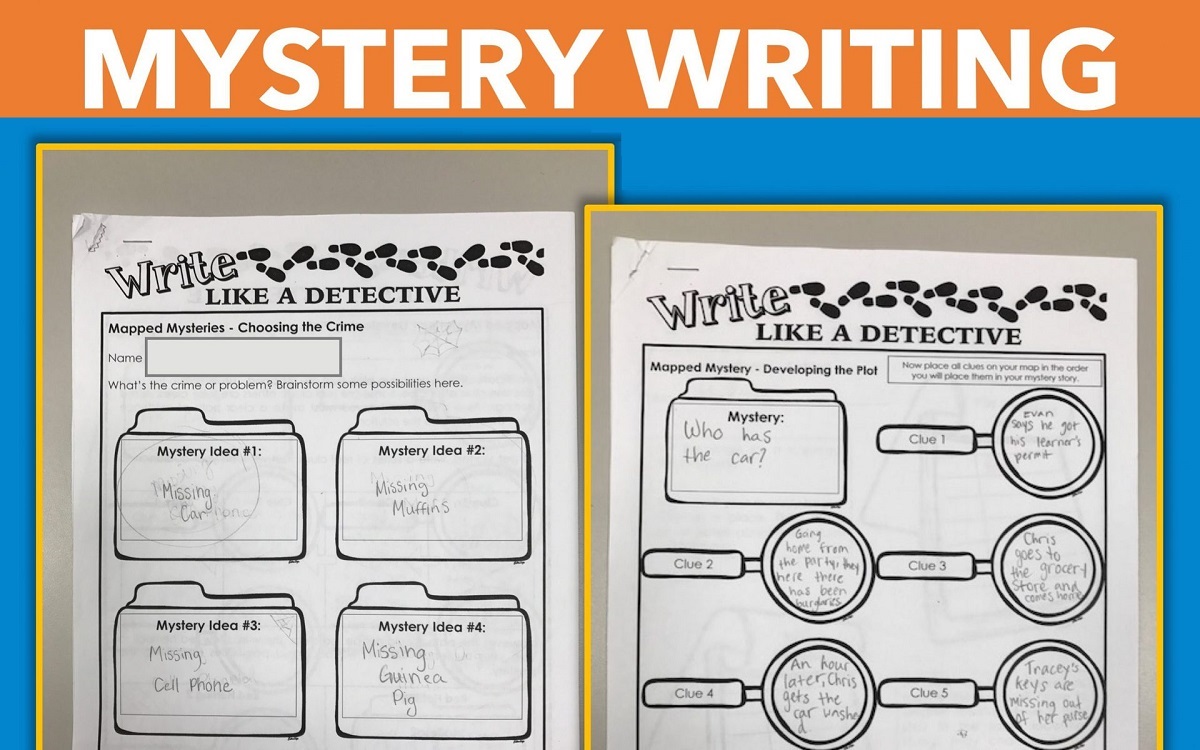A quality mystery
storyline will include interesting figures, action, and a dilemma that will
keep you flipping through the story. However, writing an exciting mystery novel
might be challenging, particularly if you have never attempted it previously.
If you want, you can write your page-turning mystery with the correct planning,
creativity, and structuring.
You may already know
what kind of mystery you want to write. You can also take advantage of online ghostwriting services
as well. There are a number of writers who can write an effective mystery for
you. But we are here to guide you. So, let’s start this blog.
What
is Mystery?
A mystery story is a
type of fiction in which the plot revolves around a perplexing crime, incident,
or scenario that must be explained. Stories can be fictional or non-fictional
and can center on both supernatural and non-supernatural issues. The phrase
derives from the Latin mysterium, which means "a secret thing." Many
mystery stories feature a "murder mystery" premise, in which the
mystery hinges upon identifying the perpetrator or villain.
Types
of Mystery
Mysteries are
classified as mainly nonfiction or fictional, with subcategories within both incorporating
a mix of different creative forms.
1.
Fiction Mysteries
Fictional mysteries
are narratives that are not based on true occurrences and might be practical or
exotic in tone. They cross over into other genres of literature like fantasy.
Mysteries, terror, murder mysteries, vintage literature, and even science
fiction. The most prominent form of literary mystery is investigative fiction,
which expressly depicts a detective investigating a crime; nonetheless, it is
today regarded as a distinct type of art.
2.
Nonfiction Mysteries
Nonfiction mystery
books include a broad variety of topics, often involving riddles of heritage,
philosophy, religions, magic, the paranormal, or eternity, and often including
real events.
A key distinction
between fiction and nonfiction mysteries is that fiction mysteries are near.
Always conclude with the mystery getting solved.
3.
Successful Tips on How to Write a Mystery
There are a few things
to keep in mind while you write, whether you're creating your debut mystery novel
or merely wish to enhance your mystery-writing skills.
These mystery writing
ideas will keep your readers guessing and wanting more.
4.
Engaging and Gripping Opening
It's critical to pique
your reader's interest right away. You want readers to get lost in the story.
And turn the pages rapidly to see what comes next.
The introduction could
be anything, but portraying the crime right away is a good place to start. Of
course, this isn't the only way to accomplish it, so do what you think would
work finest for your book.
5.
Make a spooky vibe
Even the most stunning
tale twist would fall by the wayside if the tone was off. Set a suspenseful
tone that draws readers into your novel's world.
A dark setting, such
as a deserted lodge in the woods or an abandoned building in the midst of
nowhere. A comprehensive description of the case's disquieting characteristics
and compelling dialogue. Book publishing company USA
will draw your readers into the story and encourage them to continue reading.
6.
Study A lot Of Similar Mysteries
If you pay close
attention, great thriller books are jam-packed with writing instructions.
Disclose n New and classic crime novels, as well as the best crime fiction by well-known
authors. Check out the novel again to see how the author used deception and
clues to solve the puzzle and raise the stakes.
Once you've finished
the book and the mystery has been answered. Go back to the opening page. Reread
the novel to see how and when the author used deception and hints to solve the
mystery and increase the tension.
7.
Build Interesting and Dynamic Characters
You'll require characters with a purpose if you're creating a mystery tale. What is their role in the investigation? What exactly does this have to do with them, and why is it so significant to them?
Your characters should
feel a personal link to the situation, or at the very least a feeling of
mission in it. The case will only empower them in the end. And they will be
stretched to their utmost at that period.
8.
Make A List of People You Think Might Be Involved
Composing mysteries is
similar to putting together puzzles, and the most important piece of the jigsaw
is usually the character of the offender. Throughout the course of the story, a
great mystery will introduce various prospective suspects.
In fact, many of the
finest mystery stories introduce the actual criminal early on, allowing the
reader time to suspect their culpability. Before putting your suspects to paper,
make a list of them and investigate their likely motives.
9. Give Wrong Directions to Your Readers
The mystery narrative
is full of redfish, or false clues, that mislead readers down the wrong path
while they try to seek out reality. That deception is part of the excitement,
heightening intrigue and increasing interest as your audience follows your
sleuth through unexpected twists and turns. When there's still more story to
tell, the last point you want is for them to discover it.
10.
Share Facts Gradually
As you compose, think
about how your reader will respond to the manner you pace your story. You have
complete control over the amount of information you expose, as well as how and
when you do so. Every mystery story has a central narrative. But it's usually
built upon minor events that keep the reader engaged altogether.
11.
Read and Rewrite Again and Again
A second version is
beneficial to most artistic activities, and this is particularly true in
mystery writing, especially if this is your first novel. Recall how you went
back and reread those masterpieces and greatest once you figured out how they
ended? Use the same approach with your newest mystery. Analyze your timing and
reorganize your hints so that you can reach the stunning conclusion you've
actually published.
Final Thoughts!
Once you have your characters, concepts, and a list of investigators and evidence, you can begin outlining your novel. The plot usually centers upon a (real or novice) investigator's attempts to explain the tragedy.
To make it critical
for the detective to solve a crime, you should find a personal or professional
reason. If you want your reader to be involved in what occurs in your writing,
this is critical.


